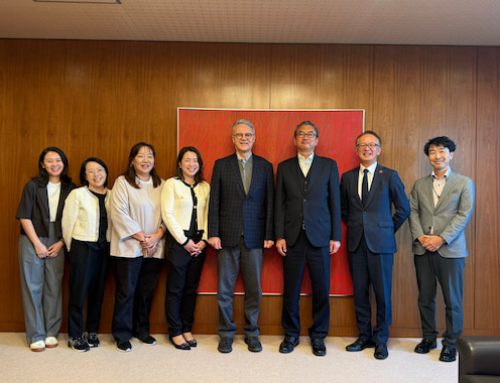This year, World Standards Day aims to highlight how standards provide a shared framework that enables meaningful collaboration across industries, governments, and organizations to achieve common objectives.
Celebrated worldwide on October 14th, it recognizes the significance of standards-related efforts and underscores the crucial role standardization plays in the global economy, raising awareness among regulators, industries, and consumers about its impact and importance.
“True progress happens when we speak the same language: the language of standards. They connect vision with action, purpose with practice. At GSTC, we believe that through shared standards, sustainability becomes not just an aspiration, but a common journey we all take together as an industry, and from the earliest stages onward in an organization’s journey toward sustainability,” says GSTC CEO, Randy Durband.
Importance of Standards
The Global Sustainable Tourism Council (GSTC) establishes and manages global sustainable standards, the GSTC Standards, also known as the GSTC Criteria. The GSTC Destination Standard for public policy-makers and destination managers, GSTC Hotel Standard & GSTC Tour Operator Standard, GSTC MICE Standard for Venues, Event Organizers, and Events & Exhibitions, and the GSTC Attraction Standard for tourist attractions such as theme parks, museums, and national parks.
The GSTC Standards are developed and maintained via a highly inclusive worldwide effort to create a common language about sustainability in tourism.
The GSTC Standards are closely aligned with the Sustainable Development Goals (SDGs), addressing economic, environmental, and social aspects. It offers valuable guidance to tackle sustainability challenges, supporting the achievement of the 2030 Agenda for Sustainable Development and its 17 SDGs.
The GSTC Standards form the foundation for GSTC’s assurance role for Certification Bodies that certify hotels/accommodations, tour operators, and destinations as having sustainable policies and practices in place.
Certification is a crucial aspect of implementing standards, involving third-party assessments to ensure compliance with the standards. While GSTC does not conduct certifications directly, it accredits Certification Bodies that certify tourism businesses and destinations.
GSTC Accreditation is a mark of quality that GSTC places on certification bodies that choose our independent, credible, and impartial process to verify that they certify businesses, such as hotels, tour operators, MICE, attractions, or destinations, in a competent and neutral manner.
Under development: GSTC Standard for Food & Beverage Service Providers in Tourism in partnership with TGA
In August 2024, GSTC, in partnership with the Türkiye Tourism Promotion and Development Agency (TGA), announced its plans to expand the GSTC Standards, the global standards for sustainable tourism, by developing a new set specifically for tourism-related food service providers. This forthcoming set, with an official name to be determined, will establish global sustainability standards tailored to the unique needs of food and beverage service providers within the tourism industry.
The GSTC Standards are developed based on the GSTC Standard Setting Manual v3.0, where the ISEAL Code of Good Practice for Sustainability Systems is used as a reference.
The official launch of this new set for Food & Beverage Service Providers in Tourism will be announced in December 2025.
Global Impact of GSTC Standards
The Standards are the minimum, not the maximum, which businesses, governments, and destinations should achieve to approach social, environmental, cultural, and economic sustainability. Since tourism destinations each have their own culture, environment, customs, and laws, the Standards are designed to be adapted to local conditions and supplemented by additional criteria for the specific location and activity.
Intended impacts and outcome
- Provide guidelines for businesses and destinations of all sizes and all over the world to become more sustainable.
- Provide guidance for travelers and travel providers in choosing suppliers and sustainable tourism programs.
- Provide a common denominator for media to recognize sustainable tourism providers.
- Help certification and other voluntary programs ensure that their standards meet a broadly accepted baseline.
- Governmental, non-governmental and private sector programs have a framework for developing sustainable tourism requirements.
- Provide guidelines for education and training bodies such as hotel schools and universities.
Learn more about GSTC Standards
If you want to learn more about sustainable tourism, explore GSTC’s Sustainable Tourism Training Program, which offers a series of professional courses designed for different sectors of the industry, including destinations, hospitality, and tour operations, providing participants with the knowledge, tools, and global best practices needed to implement and advance sustainability strategies effectively.
About GSTC
GSTC is an independent and neutral USA-registered 501(c)3 non-profit organization that represents a diverse and global membership, including national and provincial governments, leading travel companies, hotels, tour operators, NGOs, individuals and communities – all striving to achieve best practices in sustainable tourism. The GSTC is an ISEAL Community Member, a global membership organization for ambitious, collaborative, and transparent sustainability systems, as well as an Association Member of The International Accreditation Forum (IAF) and an Associate Member with the InterAmerican Accreditation Cooperation (IAAC).
Information for media and the press: www.gstc.org/about/for-the-press/



